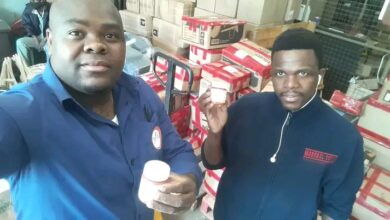MTN Group Reports Strong 2022 Earnings And ROE Expansion

MTN Group Reports Strong 2022 Earnings And ROE Expansion. MTN Group reported a strong 2022 financial performance, including an expansion in return on equity to 23.4% and a 10% increase in the dividend to 330 cents per share, in a challenging macroeconomic environment of elevated inflation across the company’s 19 markets. In the year to 31 December 2022, total subscribers rose 6% to 289 million, with data subscribers growing by more than 12% to 137 million and Mobile Money users up by 21% to 69 million.

Demonstrating good operational execution and ongoing strategic delivery, in constant currency terms the Group reported a 15.3% increase in service revenue to R194 billion and maintained a stable margin on earnings before interest, tax, depreciation and amortisation (EBITDA) of 44%. EBITDA increased by 14.3% to R90 billion. It was supported by the company’s expense efficiency programme which yielded R2.7 billion in savings, mostly in Nigeria and South Africa. “The structurally higher demand for data and fintech services was sustained, with data traffic and fintech transaction volumes increasing by around a third each,” said MTN Group President and CEO Ralph Mupita. “To support this, we invested more than R38 billion in our network, IT and platform infrastructure – an increase of 17%, while at the same time reducing consumers’ average cost to communicate by nearly 23%.”
The network investment expanded access to broadband services to almost 88% of the population (from 83% in 2021) in the company’s markets as it focused on rural rollout, extending digital inclusion across Africa. MTN’s contribution to society also included income taxes of approximately R14 billion paid to nation states in the year. Alongside the increase in capital investment, the company’s proactive commercial, expense efficiency, supply chain, network and financial resilience interventions helped alleviate the impact on results of a tough operating environment. This included – across markets – high inflation and interest rates, weak local currencies, pressure on disposable income and in South Africa, the significant impact of severe loadshedding.
The performance of MTN South Africa was solid, with growth in service revenue of 3.6% to almost R41 billion and an EBITDA margin of 39.2%. Loadshedding impacted EBITDA by R695 million as the Opco incurred additional expenditure to meet the requirements of power, security and repairs, the latter due to the vandalism of sites. On MTN South Africa, Mupita said: “We are encouraged by the performance of the business and the focus on network resilience. Amid unprecedented loadshedding and the intensified need for back-up power in the second half of 2022, MTN South Africa invested significantly to secure network resilience.”
He added: “With the state of disaster regulations gazetted, South Africa now has a unique opportunity to accelerate efforts to secure the resilience of critical national infrastructure such as telecommunications. Government and business must jointly seize this moment and act decisively to deal with the quadruple crises of energy; logistics; crime and corruption; and youth unemployment. Inaction risks South Africa being a failed nation state.” Across its markets, MTN continued to execute on its four strategic priorities. To build the largest and most valuable platforms, the company expanded its fintech ecosystem and made progress in separating its fintech business from its GSM business, receiving offers for strategic minority investments into the MTN Group fintech structure.
To drive industry-leading connectivity operations, MTN increased voice, data and fintech revenue, rolled out more than 5 000km of fibre and invested in subsea cables. To create shared value, it reduced its scope 1 and 2 emissions in pursuit of net zero by 2040. Diversity and inclusion remained central to its efforts as it achieved 40% women representation, moving closer to its 2030 target of gender parity. The company also accelerated portfolio transformation, recording proceeds from asset realisations of R12 billion and signing a share purchase agreement with a subsidiary of M1 Group Limited to acquire all our shares in MTN Afghanistan for a gross consideration of US$35 million.
Looking ahead, the company remains focused on executing on its Ambition 2025 strategy and maintain its guidance for performance over the next three to five years, despite elevated macroeconomic risks in South Africa and Nigeria. Across its markets, in 2023 MTN plans to invest more than R37 billion in networks and platforms, of this, it will spend R9 billion on the South African network.


